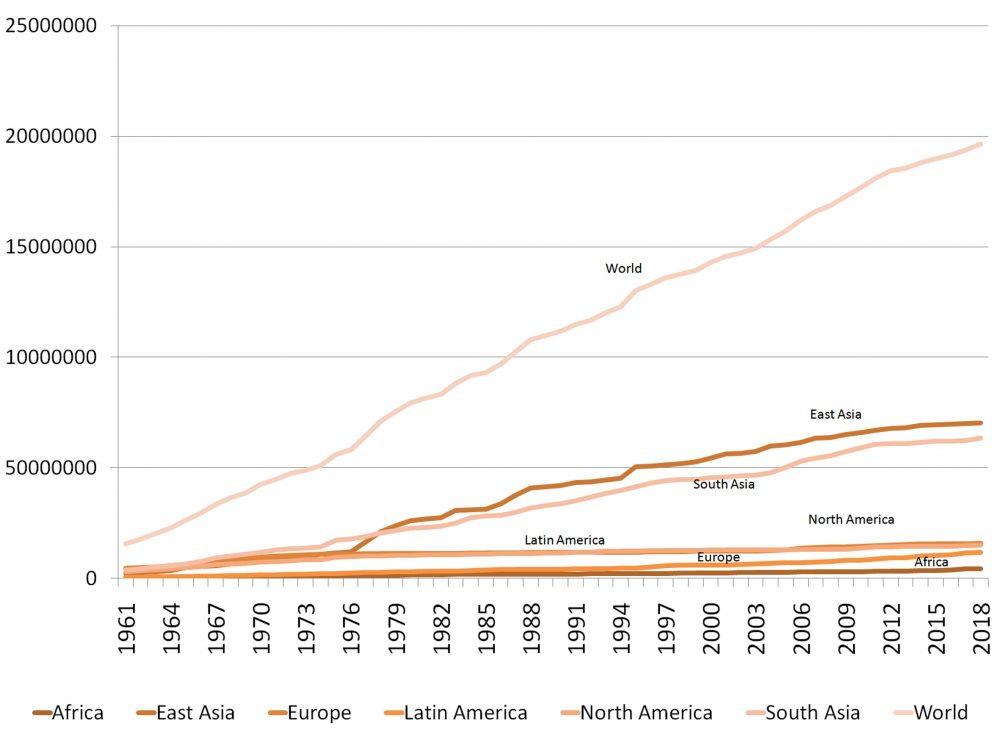Synthetic nitrogen fertilizer use in industrial agriculture must stop to avert climate catastrophe

Published: December 7, 2021
Category: Industrial Agriculture Damage
As governments panic over the escalating cost of synthetic nitrogen (N) fertilizers triggered by a natural gas price surge, it’s sobering to note that the fertilizers are a major contributor to the climate crisis. Three scientists working with Greenpeace, GRAIN, and IATP measured the impact of synthetic N fertilizers on climate, revealing that they are responsible for 2.4% of global emissions (and 21.5% of agriculture’s emissions) totaling around 1,250 million tons of CO2 in 2018.
While most emissions occur after the fertilizers are applied to soil, 40% come from production and transport in the form of CO2. Unfortunately, synthetic N fertilizer use has grown 800% since the 1960s and is projected to rise 50% more by 2050. Though the fertilizer emissions are concentrated in large areas (China, India, North America, and Europe), on a per capita basis the highest emitters are the large agricultural exporters: U.S. and Canada, four countries in South America, Australia and New Zealand, and four European countries.
Agribusiness giants have long claimed that “precise” application can reduce synthetic N fertilizer use, but the new research finds no evidence of this.
The decoupling of livestock and crops due to proliferation of factory farms has fueled demand for imported feed crops requiring the fertilizer instead of manure that could provide the nitrogen. Livestock/crop separation has also disrupted soil nutrient cycles, necessitating the use of chemicals.
It’s clear from the study that addiction to synthetic N fertilizer must be phased out globally and replaced with agroecological farming models, integrating feed and animal sources. Industrial livestock also needs to go, the report says—feed, meat, and dairy production as it’s done involves major synthetic N fertilizer use, is a tremendous source of emissions, and also damages forests and biodiversity.
Source: GRAIN
To view source article, visit:
Organic & Non-GMO Insights December 2021








